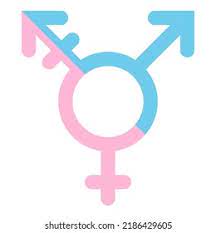Transgender identities are an essential and diverse part of our society, and understanding them can help foster acceptance and support. Among these identities, Male-to-Female (MTF) transgender individuals represent those who are assigned male at birth but identify as female. The journey of transitioning can be profound, encompassing various physical, emotional, and social aspects. This article aims to provide a comprehensive overview of the MTF experience, covering key terms, transition processes, and the importance of support systems.
Understanding Transgender MTF: A Quick Overview
Transgender MTF individuals are those who transition from a male gender identity to a female one. This process can include social, medical, and legal changes that align their outward presentation and identity with their true selves. Each person’s journey is unique, as some may choose to undergo various forms of transition while others may not. Recognizing the spectrum of gender identity is fundamental to understanding the MTF experience.How To Decrease Estrogen Levels In Men
The MTF transition is often rooted in the realization of one’s gender identity at an early age, though it can occur at any stage in life. Many MTF individuals face challenges related to societal acceptance, discrimination, and personal acceptance. Education about transgender issues can create a more inclusive society that supports individuals in their journey toward self-identification.
Key Terms You Should Know About MTF Transition
When discussing transgender MTF individuals, it’s crucial to understand some key terms. "Gender dysphoria" refers to the psychological distress that arises when a person’s gender identity differs from their assigned sex at birth. Recognizing this experience is essential for offering appropriate support and understanding. Other common terms include "cisgender," referring to individuals whose gender identity aligns with their assigned sex, and "non-binary," encompassing identities that do not fit strictly within the traditional male or female categories.
Another important term is "transition," which can refer to various aspects of changing one’s gender presentation. This includes social transition, where individuals may change their name, pronouns, and appearance. Medical transition often involves hormone therapy or surgeries but varies widely from person to person. Understanding these terms can help demystify the transition process and promote compassion for those undergoing it.
The Journey of Transition: Steps and Considerations
The journey of transition is a deeply personal one, and the steps involved can differ significantly among individuals. Some may begin their transition by adopting a new name and pronouns and changing their clothing or hairstyle to align with their gender identity. This social transition can be liberating and affirming but may also come with challenges, such as facing potential rejection or misunderstanding from friends, family, or colleagues.
Medical transition is another critical aspect, often beginning with hormone replacement therapy (HRT). Before starting HRT, many individuals seek therapy for guidance and support, ensuring they are making informed decisions about their bodies and identities. Additionally, it’s essential to consider legal aspects, like changing one’s name and gender marker on official documents, which can further affirm one’s identity and ease societal interactions.
Hormone Therapy: What to Expect During Transition
Hormone therapy plays a significant role in the MTF transition, involving the administration of estrogen and anti-androgens. Estrogen is crucial for developing secondary female sexual characteristics, such as breast development, softer skin, and body fat redistribution. Anti-androgens help reduce male characteristics, such as facial hair growth and body hair. It’s essential to consult with a knowledgeable healthcare provider to tailor the treatment plan to individual needs.
Expectations during hormone therapy can vary widely among individuals. While some may experience significant changes within a few months, others may take longer to notice effects. Regular monitoring by healthcare professionals helps manage any side effects and adjust dosages as needed. Overall, hormone therapy can greatly enhance one’s sense of alignment with their gender identity, contributing positively to mental well-being.
Gender Affirming Surgeries: Options for MTF Individuals
For many MTF individuals, gender-affirming surgeries can be a vital part of their transition journey. These procedures aim to align physical appearance with gender identity, helping to alleviate gender dysphoria. Common surgeries include breast augmentation, orchiectomy (removal of testicles), and vaginoplasty, which creates a neovagina. Each surgery comes with its own set of considerations, including risks, recovery time, and potential impact on mental health.
Deciding to undergo surgery is an intensely personal choice and should be made after careful consideration and consultation with healthcare professionals. Many MTF individuals find comfort and affirmation in these procedures, as they can lead to improved self-esteem and a stronger sense of identity. However, it’s important to note that not all individuals feel the need to pursue surgery, and every transition journey is valid, regardless of the choices made.
Navigating Social Changes During Your Transition
Transitioning socially can bring about significant changes in relationships with family, friends, and colleagues. Some individuals may encounter support and acceptance from loved ones, while others may face misunderstanding or rejection. It’s essential to communicate openly about one’s identity and to educate others where possible. For many, establishing a support network of friends, family, or online communities can provide comfort and encouragement throughout the process.
In work environments, navigating social changes can be particularly challenging. Advocating for oneself and ensuring that colleagues respect one’s name and pronouns is crucial. Supportive workplace policies and training can foster a more inclusive atmosphere, making it easier for MTF individuals to thrive professionally while being true to themselves. Ultimately, surrounding oneself with understanding people can make the transition smoother and more affirming.
Mental Health and Support Systems for MTF Individuals
Mental health is a critical aspect of the MTF transition experience. Many individuals face challenges such as anxiety, depression, or feelings of isolation during their journey. Access to supportive mental health professionals who are knowledgeable about transgender issues can make a significant difference. Therapy can help individuals navigate the emotional complexities of transitioning and develop coping strategies for the challenges they may face.
In addition to professional support, community connections play a vital role in mental wellness. Support groups, online forums, and local LGBTQ+ organizations provide safe spaces for MTF individuals to share their experiences, build friendships, and find solidarity. These connections can diminish feelings of isolation and foster a sense of belonging, reinforcing the importance of community in maintaining mental health during transition.
Celebrating Diversity: MTF Experiences in the Community
The MTF community is incredibly diverse, encompassing individuals from various backgrounds, cultures, and experiences. Celebrating this diversity is key to understanding the richness of transgender lives. Events such as Pride parades, Transgender Day of Remembrance, and local community gatherings provide opportunities for MTF individuals to express their identities, share their stories, and connect with others who have similar experiences.
Recognizing the unique experiences of MTF individuals can help combat stigma and foster a sense of pride within the community. By showcasing the achievements, talents, and contributions of MTF individuals, society can begin to shift its perception, viewing transgender people as integral members of the community. Embracing and celebrating diversity not only enriches the lives of MTF individuals but also strengthens the fabric of society as a whole.
Understanding and supporting the experiences of transgender MTF individuals is essential for fostering an inclusive society. By educating ourselves on the transition process, recognizing the importance of mental health support, and celebrating diversity, we can contribute to a world where everyone feels accepted and valued for who they truly are. Every journey is unique, and by embracing these differences, we can create a more compassionate and understanding community for all.


